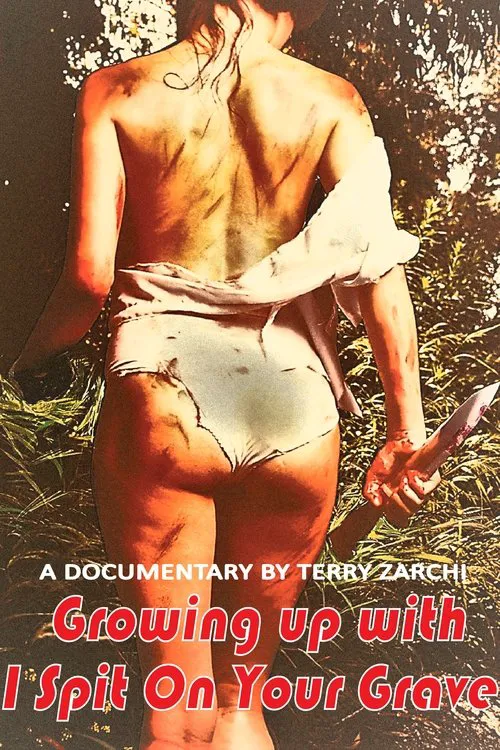Growing Up with I Spit on Your Grave

Plot
Growing Up with I Spit on Your Grave is a thought-provoking documentary that offers a unique perspective on the making of Meir Zarchi's 1978 film, I Spit on Your Grave. The documentary, directed by Michael Zimmermann, not only provides an intimate look at the creation of this infamous cinematic work but also invites key individuals associated with the film to confront their past experiences and the impact of the movie. Released in 1978, I Spit on Your Grave is a psychological horror film that follows the story of Jennifer Hills, a young lawyer who seeks revenge against the men who brutally assaulted her. The film has become notorious for its graphic content, including scenes of prolonged and disturbing violence. This notoriety has led to debates regarding the film's place within the horror genre and its potential to incite viewers to commit similar acts of violence. Growing Up with I Spit on Your Grave begins by discussing the film's origins. Meir Zarchi, an Israeli film writer and director, first envisioned the story that would become I Spit on Your Grave in the 1970s. Feeling inspired by the true-life accounts of rape and assault, Zarchi aimed to create a film that would not only portray the trauma inflicted upon victims of such crimes but also highlight the psychological effects on the perpetrators. Zarchi's intention was not to glorify violence but rather to expose the harsh realities associated with such acts. The documentary focuses on the film's casting, which included Camille Keaton in the lead role of Jennifer Hills. Keaton has been an outspoken advocate for women's rights and, as such, she faced many challenges in her personal and professional life upon the film's release. In an interview within Growing Up with I Spit on Your Grave, Keaton expresses her complicated feelings toward the film. On the one hand, she acknowledges the importance of I Spit on Your Grave in sparking conversations about rape culture and women's empowerment. On the other hand, Keaton cannot deny the impact that the film had on her own experience and reputation. As for the film's director, Meir Zarchi, he also appears in the documentary. Zarchi discusses his motivations for making I Spit on Your Grave, stating that his intention was to create a film that would raise awareness about the frequency and severity of rape. He claims that his film was an honest portrayal of the realities faced by victims of assault, and he disputes the notion that the film encourages violence. However, many have criticized Zarchi's film for precisely this reason, arguing that the prolonged scenes of violence and torture serve to titillate rather than educate. Some have also pointed to Zarchi's background and the cultural context in which he made the film. Growing Up with I Spit on Your Grave touches upon these points, highlighting the debate surrounding the film's potential impact on its viewers. Throughout the documentary, viewers are met with a range of opinions on the film and its place within the wider cinematic landscape. Some cast and crew members share stories of how the film's release affected their personal and professional lives. Others offer criticisms of the film's handling of sensitive topics and its potential for perpetuating harm. The documentary also delves into the controversy surrounding the film's release and re-release. I Spit on Your Grave sparked widespread outrage among audiences and critics alike, with some calling for the film's censorship and others denouncing it as "snuff" or "kinky." Growing Up with I Spit on Your Grave includes an account from Meir Zarchi regarding how he handled these challenges, emphasizing his commitment to sharing a difficult and necessary message with the world. Ultimately, Growing Up with I Spit on Your Grave is a complex and thought-provoking exploration of the I Spit on Your Grave phenomenon. By inviting key figures to share their perspectives on the film, the documentary presents a multi-dimensional view of Meir Zarchi's infamous work. While this film raises many contentious questions, it undoubtedly invites viewers to participate in a necessary conversation about violence, women's rights, and representation within popular culture. As a cultural artifact, Growing Up with I Spit on Your Grave offers an intriguing case study that encourages us to consider the intersections of art, politics, and reality in cinema.
Reviews
Recommendations




